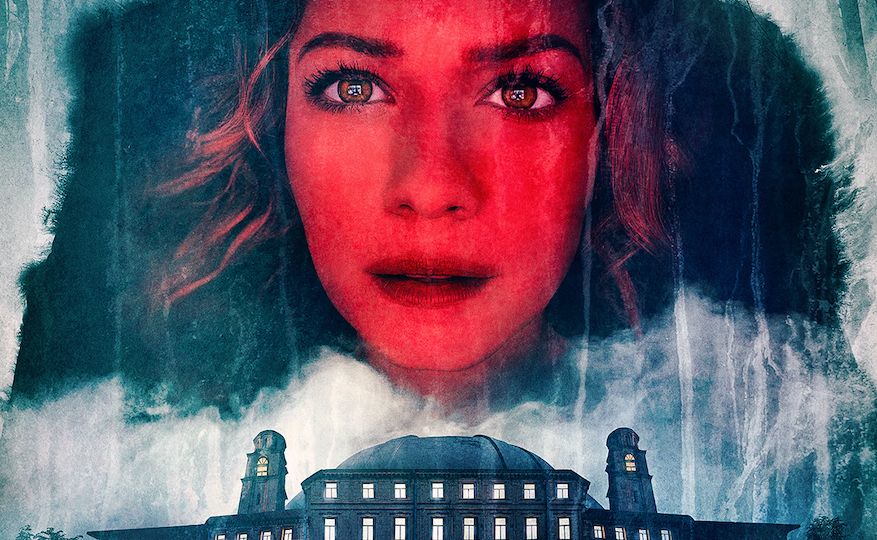
5 Questions with Stephanie Groves is an ongoing series featuring local women doing interesting things that we’d like to know more about. Want to be featured? Email us at editorial@indymaven.com.

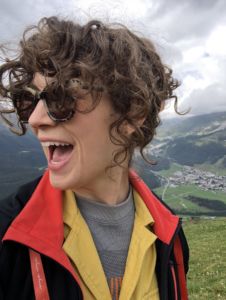
A shocking, suspenseful film with deep Indiana roots, “So Cold the River” was just released and is now available digitally and on-demand. From award-winning writer and director Paul Shoulberg, the chilling flick stars Bethany Joy Lenz of “Dexter” and “One Tree Hill” fame. The film is an adaptation of a book by the same name, by “New York Times” bestseller Michael Koryta, and the story is inspired by West Baden Springs Hotel, where the film was shot.
Claire Tuft was a producer on the film, working for Indiana-based production company Pigasus Pictures. When she’s not on location in Indiana with Pigasus, Claire is an Oregon and New York-based writer and producer.
How did you become involved in the production of “So Cold the River?”
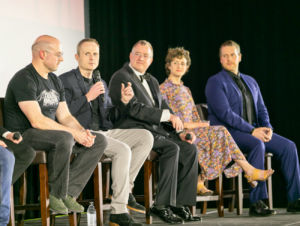
In early 2019, once Paul (Shoulberg) and Michael (Koryta) had already completed a handful of revisions on the script and the production was greenlit, Paul reached out to see if I might be interested in coming on board as one of the film’s producers. Paul and I go back to Indiana University where we both studied in the theatre department. I also worked on his previous two films with Pigasus, “The Good Catholic” and “Ms. White Light.” “The Good Catholic” was actually the first film I ever worked on behind the camera.
I’d been gathering experience on various projects independently and with Pigasus since then, but “So Cold the River” was the first feature I was brought on to as a full producer. I’m so grateful to Paul for bringing me on board and trusting me with the job—it was a sizable project to tackle as a first-timer! But I’m so glad I did—it was such a wildly unique project to undertake and have a hand in bringing to life. It’s truly been a mind and heart-expanding experience.
“So Cold the River” is based on a book by Michael Koryta, who used the West Baden Springs Hotel and French Lick as settings for the original novel. How did you work to incorporate the iconic Indiana landmark hotel and surrounding areas into the film?
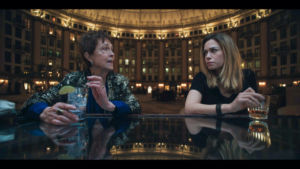
This film would’ve been impossible to make without the direct involvement of West Baden Springs Hotel, the novel and film’s inspiration—a real place that’s part of French Lick Resort. Michael was working to get the adaptation made in Hollywood about a decade ago, but executives there wanted to build a version of the hotel on a soundstage. They balked at the idea that the hotel was real, that it matched its scale in the novel and that it made any sense to film there.
Thankfully for us, Michael wouldn’t dream of making the film anywhere else, let alone on a Los Angeles soundstage. The film is what it is thanks to the Cook Group and the French Lick Resorts’ involvement, practically giving us the keys to the kingdom—you couldn’t have asked for a more spectacular place to film.
Beyond the hotel, Southern Indiana delivered in myriad ways. We were able to film in a working hospital in Paoli, create our “river” from the Patoka Lake, and even replicate a Chicago loft apartment in a building across the street from West Baden Springs Hotel. Those are just a few of the locations we were able to transform that collectively make up the vivid and varied world of the film.

With its rich history and iconic architecture, the West Baden Springs Hotel inherently became a character of its own in the film. We are proud to bring this thrilling storyline to the big screen and with it, highlight an Indiana landmark.
Did anything eerie happen in real life when you were on set filming “So Cold the River?” If not, what was the most unexpected/craziest thing that happened during filming?
I scare incredibly easily, and if I’m honest, usually steer clear of horror/thrillers even though I generally love the concepts and filmmaking in them! Going into production, I prepared myself for the worst. We were filming over five weeks in rural Indiana, in an enormous, empty, historic hotel, in the dead of winter, and on mostly overnight shoots.
Fortunately, the mammoth task of film production drowned out any (spooky) fears. I was so busy running around and focusing on the work that I stressed or slept through any visitations. That said, other crew members did mention weird instances of lights flickering or the smell of cigar smoke, (which apparently has been reported often and has a story behind it), and the hotel staff regaled us with stories of eerie happenings from their years at West Baden.
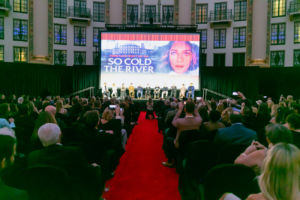
The craziest and most unexpected thing that happened during filming was the sheer feat of getting it done and that we pulled it off. We were given access to unthinkable toys and resources for an indie film—the run of an incomparably grand hotel, a working train, hundreds of enthusiastic extras, support from the community that you’d be hard-pressed to find elsewhere. The film had daunting filmmaking challenges and Paul and our creative team, including our brilliant Director of Photography, Madeline Kate Kann, had an ambitious vision.
It’s still wild to me that we did it, and I’m so grateful to every person who had a hand in getting us over the finish line.
What advice do you have for other women who are looking to work in the film industry, in Indiana or elsewhere?
If you’re just starting out and want to get involved in film, no matter where you are, find a way to be on a film set. Stick with it, believe in yourself, listen, learn, and seek out people who see you, value your contribution, and make you feel good and motivated to pursue your goals. (Steer clear of the ones who do the opposite when possible!)
As you progress, resist the urge to be a responsibility sponge. Know what your role is, do a killer job doing it, and go beyond the call of duty when it’s warranted/deserved. But be careful of undermining your value or spreading yourself too thin by taking on or assuming responsibility for others’ misses. That may sound heartless, and I don’t think it is as simply “gendered” as this, but with so many female-identifying folks I work with in film, characteristics like empathy, the desire to do “well,” the desire to be liked/valued/seen/given a chance, can result in us soaking up every task that might need addressing, or unknowingly slipping into the caretaker or fixer role. There’s value and power in this! But it can also rob you of energy that you might use elsewhere, or affect how others see you, or more importantly, how you see yourself. Boundaries are your friend. Embrace visibility and know your value.
And if you’ll indulge one last tidbit: normalize showing your emotions! Not all women cry early and often, (like me) just like not all men are stoic, emotionless husks, so I say this to anyone who will hear it. Film sets can be emotionally charged places, for all involved. If you—no matter your gender identity—need to cry, cry! (I mean try not to do it in the middle of a quiet scene or when operating a $100k piece of camera equipment, but get it out when you can.) No shame in it, and no need to hide it from your department heads or peers, in my opinion. I’m biased here and this is maybe a matter of personal importance, but I would love to see work environments—in film and beyond—where we are not made to feel like we can’t express ourselves fully and authentically, especially in challenging jobs or circumstances.
Other than “So Cold the River,” what else can we look forward to from you in the future?
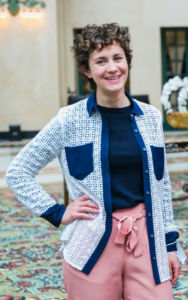
I am associate producer on a powerful and incredibly timely documentary called “True Memories and Other Falsehoods” directed by Debra Tolchinsky. It examines memory contamination and the criminal justice system. We are still in production, but there are exciting things to come, so keep an eye out!
And beginning this spring, I am joining Zachary Spicer at Pigasus Pictures to partner up on their upcoming slate of films. Lots of great projects in the works—follow @pigasuspictures to stay in the loop on what’s to come.
In addition to producing “So Cold the River,” Claire Tuft’s projects include working as a producer on “In France Michelle is a Man’s Name,” a co-producer of “Ms. White Light,” and production manager of “The Miseducation of Bindu.” She has also worked on commercial and digital projects with Spotify, Red Bull, Snapchat and Switzerland Tourism, to name a few.
Stephanie Groves is the Executive Editor of Indy Maven and she has stayed at the West Baden Springs Hotel, but doesn’t remember smelling cigar smoke.
All of our content—including this article—is completely free. However, we’d love it if you would please consider supporting our journalism with an Indy Maven membership.






